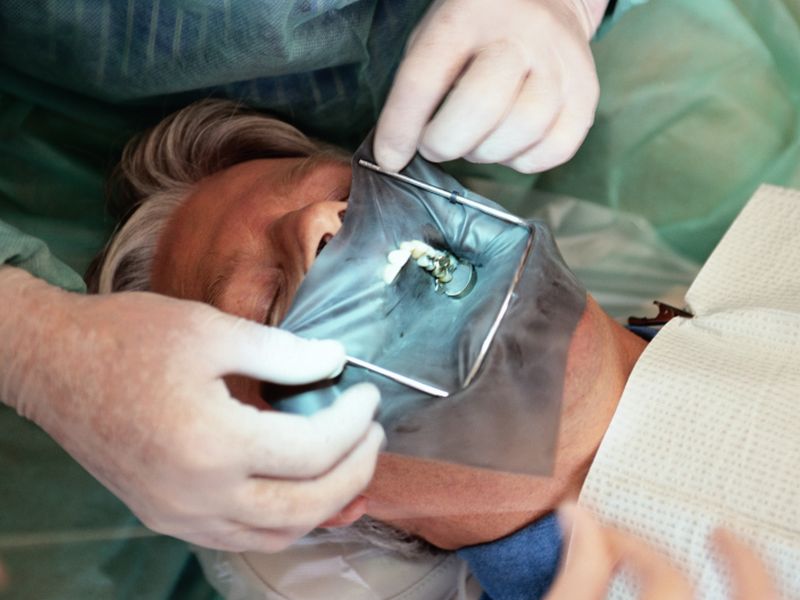

Could Prefab Blood Vessels Revolutionize Root Canals?
Oregon team develops way to regenerate the function of teeth after the surgeryWednesday, June 14, 2017

WEDNESDAY, June 14, 2017 (HealthDay News) -- A new discovery could give root canal patients a reason to smile. Researchers say they've found a way to create new blood vessels that could help these teeth last longer.
Though root canals can save teeth that are infected or decayed, those teeth can become brittle and break over time, the Oregon Health & Science University team said.
Principal investigator Dr. Luiz Bertassoni explained in a university news release that a root canal eliminates a tooth's blood and nerve supply, leaving it without "any biological response or defense mechanism."
He added that "without this functionality, adult teeth may be lost much sooner, which can result in much greater concerns, such as the need for dentures or dental implants."
Bertassoni is an assistant professor of restorative dentistry and biomedical engineering at OHSU.
His team developed a way to engineer new blood vessels in teeth with root canals.
"This result proves that fabrication of artificial blood vessels can be a highly effective strategy for fully regenerating the function of teeth," he said. "We believe that this finding may change the way that root canal treatments are done in the future."
The study was published online June 12 in the journal Scientific Reports.
More than 15 million root canals a year are performed in the United States. According to the study authors, the current procedure involves removing infected dental tissues and replacing them with synthetic biomaterials covered by a protective crown.
SOURCE: Oregon Health & Science University, news release, June 12, 2017
HealthDay
Copyright (c) 2017 HealthDay. All rights reserved.
News stories are written and provided by HealthDay and do not reflect federal policy, the views of MedlinePlus, the National Library of Medicine, the National Institutes of Health, or the U.S. Department of Health and Human Services.
- More Health News on
- Tooth Disorders




























.png)











No hay comentarios:
Publicar un comentario